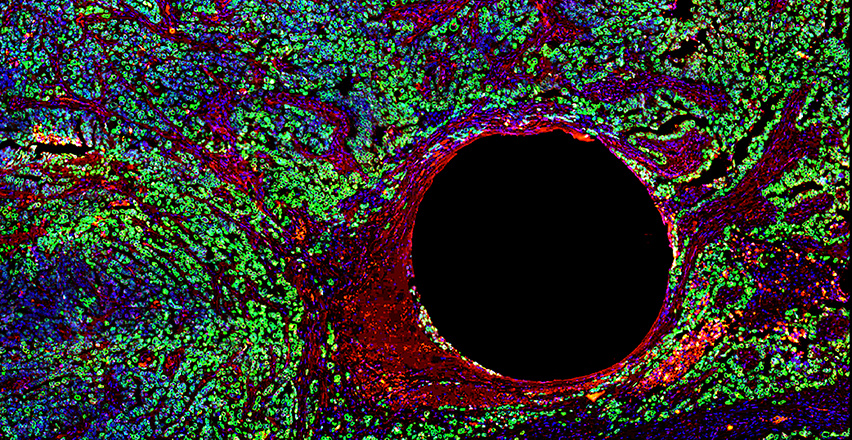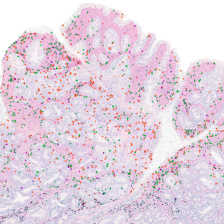
A microdevice loaded with small doses of drugs and drug combinations then implanted in a tumor can show which therapies work best in a specific tumor type. In this image, dead tumor cells (red) surround the area where the device was inserted and drugs were released. Credit: Max J. Cotler, Khalil B. Ramadi, Elena Christodoulopoulos, Sebastian W. Ahn, Oliver Jonas, and Michael J. Cima
What makes tumor cells different, and dangerous? While cancer cells share a common ability to proliferate abundantly, evade the body’s defenses, and develop resistance to treatment, they can take multiple pathways to arrive at the same lethal conclusion. Changes to cellular processes, signals, and mechanisms vary from cancer type to cancer type, and even from patient to patient. Because no two cancers are precisely the same, therapies often need to be tailored to specific tumors and patients to be effective.
Home to the MIT Center for Precision Cancer Medicine, the Koch Institute conducts discovery and translational research to help patients who do not respond well to traditional therapies. We are exploring the biological underpinnings of chemotherapy resistance and metabolic dysfunction, developing novel analytical techniques, and examining the conditions under which cancer cells survive and thrive. By understanding more about how cancer cells have remodeled their internal networks and molecular environment, we are learning how to exploit vulnerabilities unique to different cancers. Our researchers are working collaboratively to pinpoint important new therapeutic targets, design more effective drugs, and breathe new life into already approved drugs by combining them or optimizing when, where, and in what order they are delivered.



